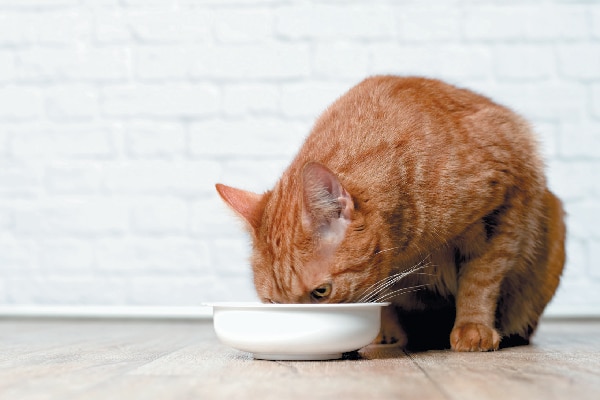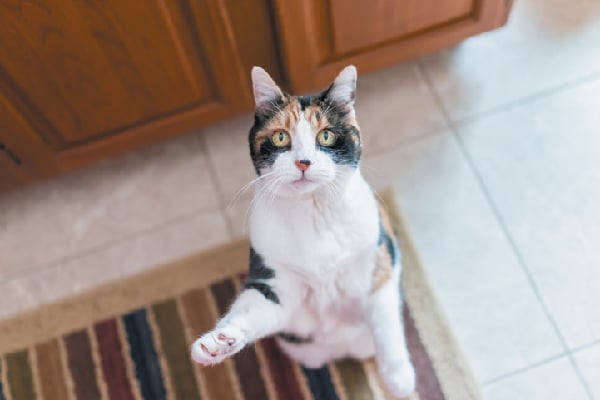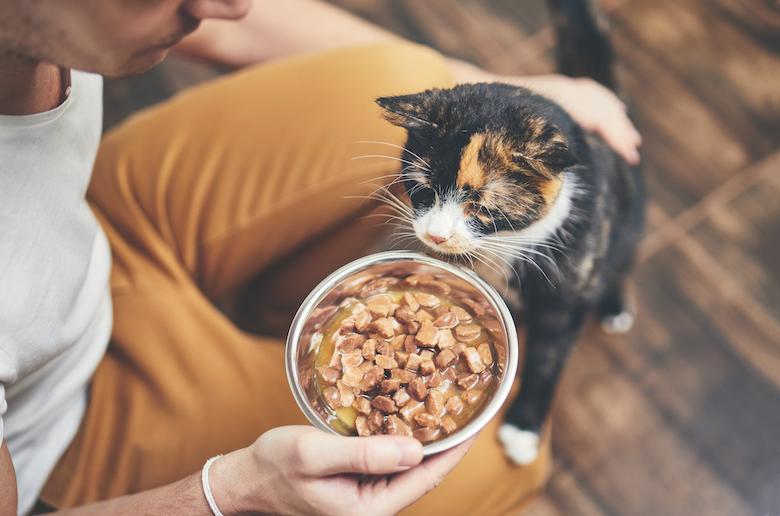Unemployment has skyrocketed during COVID-19, and it’s left people struggling to put food on their tables. When cat parents can’t afford to feed themselves, they’re likely struggling to make ends meet for their pets as well.
If you’re hurting, know you’re not alone. The ASPCA recently released new data showing that more than 4.2 million pets in the U.S. are likely to enter poverty in the next six months because of COVID-19.
“With the potential for a sustained national unemployment rate of 10%, the total number of animals living in poverty with their owners could rise to more than 24.4 million dogs, cats, horses and other animals — a 21 percent increase in the number of animals living in poverty compared to pre-COVID estimates [in February 2020],” says Jessica Sweeney, the senior program manager of ASPCA community engagement. “The number of families who may be struggling to care for their pets is staggering.”
The ASPCA has responded by setting up food distribution centers. The organization has helped stock animal shelter’s food pantries. Sweeney offers advice on finding these resources and others if you need assistance feeding your cat, and no one should be ashamed to ask for help.

Photo: Lightspruch | Getty Images.
Find an ASPCA Food Distribution Center
As COVID-19 began ravaging the economy this spring, the ASPCA rushed to set up food distribution centers in New York City, Los Angeles (El Monte and South El Monte) and Miami (Liberty City). Sweeney says residents of these areas can call the ASPCA Pet Food Distribution Helpline at 800-738-9437 for information and to set up an appointment.
Look for a food pantry
Those who do not live in an area with an ASPCA Food Distribution Center aren’t out of luck — local shelters are running food banks and pantries. Pet owners can google “pet food pantry near me” to find one. Local shelters and veterinarians can also help point you in the right direction.

Photo: ©w-ings | Getty Images.
Keep an eye out in aisles
Pet stores like PetsMart and Petco often have samples available in the aisles. You can try stocking up on those to tide you over. They also may have coupons you can use. If you can’t find any, try calling your favorite kitty food vendor and explaining your situation. They may be willing to send you some coupons or free samples.
Don’t be shy
Asking for help can be emotional. You may feel inadequate because you cannot afford cat food or embarrassed to ask for help, but you shouldn’t. Organizations are here to help.
“The COVID-19 pandemic has created unprecedented challenges for pet owners by straining essential owner resources and making it difficult for people to access the supplies and services they need to care for their pets,” Sweeney says. “We believe that pets and people belong together; that financial circumstances alone are not reliable indicators of the capacity to love and care for a companion animal.”
Featured photo: Chalabala | Getty Images
Read Next: Coronavirus and Cats: What Cat Owners Need to Know About COVID-19
